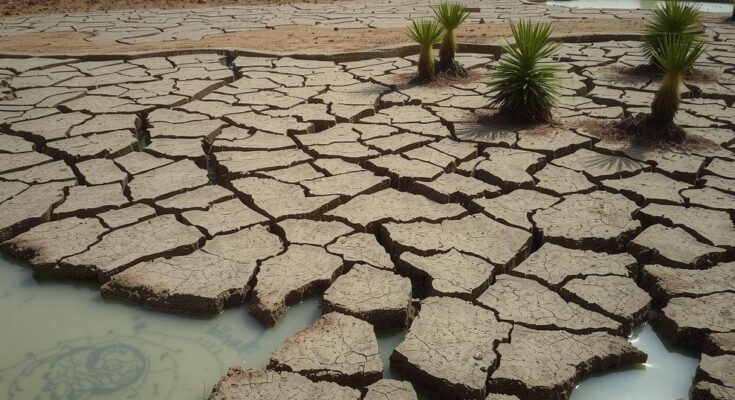South Africa faces serious water supply issues with significant interruptions and poor drinking quality affecting urban and rural populations. Recent government initiatives seek to amend the Water Services Act, mandating licenses for water providers to enhance accountability and quality. However, systemic issues such as financial instability, infrastructure neglect, and coordination challenges hinder effective solutions, necessitating comprehensive reforms for sustainable water management.
South Africa faces escalating water shortages and supply interruptions across cities and towns, with 33% of urban and 65% of rural users experiencing frequent disruptions. Recent data indicates that nearly half of urban residents boil or treat water before consumption, revealing a significant public health concern. Though water access is a legal right, 12% of rural populations remain without improved water sources, highlighting the urgency of the situation.
The latest Blue Drop report indicates that 46% of South Africa’s water supply systems cannot guarantee safe drinking water, exposing citizens to diseases such as cholera and dysentery. Additionally, the Green Drop report shows that many wastewater treatment facilities are critically compromised, with nearly two-thirds at risk of releasing untreated sewage into water sources. The No Drop report further indicates that nearly half of clean water is lost due to infrastructure issues.
In response to these challenges, the government aims to amend the Water Services Act. This adjustment would mandate that all water service providers obtain licenses from the Department of Water and Sanitation, which could be revoked if clean water is not provided. While municipalities can contract external providers, the proposed law streamlines the process for the national government to intervene in cases of local service failures.
As principal investigator for the South African Water Justice Tracker, I emphasize the need for systemic reforms within local governance to ensure sustainable water delivery. Our research identifies critical areas for improvement, including securing a stable revenue base, enhancing water system maintenance, and addressing infrastructure sabotage. Without such reforms, changes to the water law may prove ineffective.
The new licensing requirements will compel water providers to demonstrate technical and financial capabilities to operate effectively. Standards, such as the South African National Standard for Drinking Water, will ensure consistency in providing safe water. Licensing may lead to greater accountability and facilitate concessions for private, non-profit, or community-based organizations to enhance water services, though these could also raise tariffs.
Challenges remain significant. Many municipalities rely on inadequate revenue streams to support water delivery, and the criteria for determining indigent households must be standardized to uphold the constitutional right to water. Aging infrastructure and increased reliance on alternative water sources further jeopardize municipal income.
Additionally, rapid urbanization and informal settlements are outpacing existing water planning. Coordination issues among various governmental entities and the ongoing problem of water infrastructure theft, vandalism, and neglect exacerbate the crisis. Lastly, immediate actions, such as repairing leaks, are required to prevent wastage of clean water.
Ultimately, a comprehensive reform strategy is essential for meaningful improvements in South Africa’s water services, moving beyond mere licensing of providers to address fundamental structural issues.
In conclusion, South Africa’s water crisis necessitates urgent and systemic reforms. While the proposed amendments to the Water Services Act aim to enhance accountability and quality in water provision, they alone cannot remedy the multitude of issues plaguing the systems. Addressing financial sustainability, standardizing water access for impoverished communities, and maintaining infrastructure is crucial for ensuring adequate water delivery across the nation.
Original Source: theconversation.com




